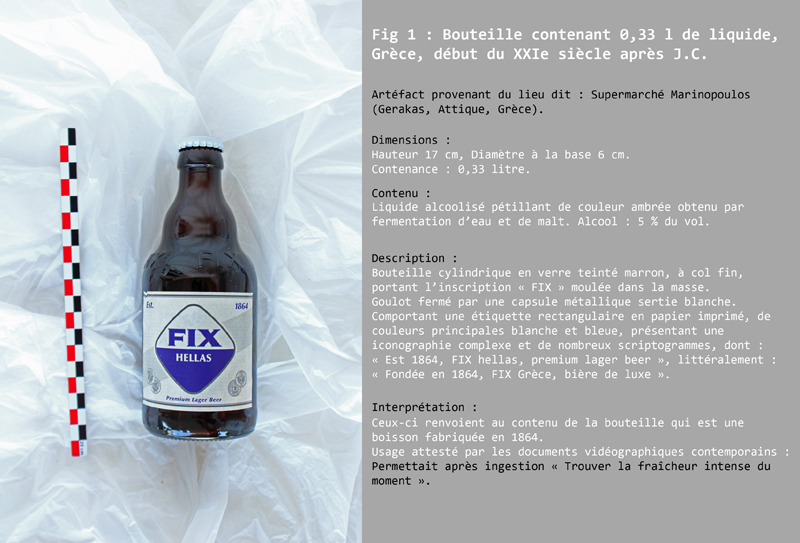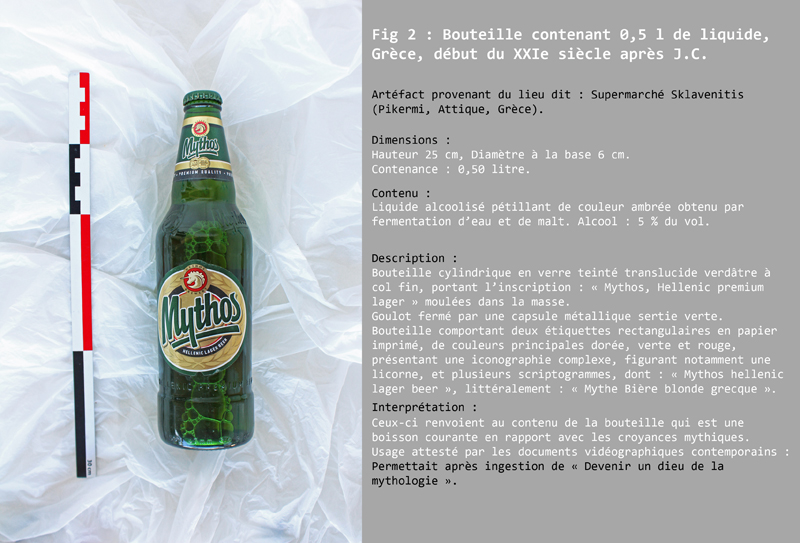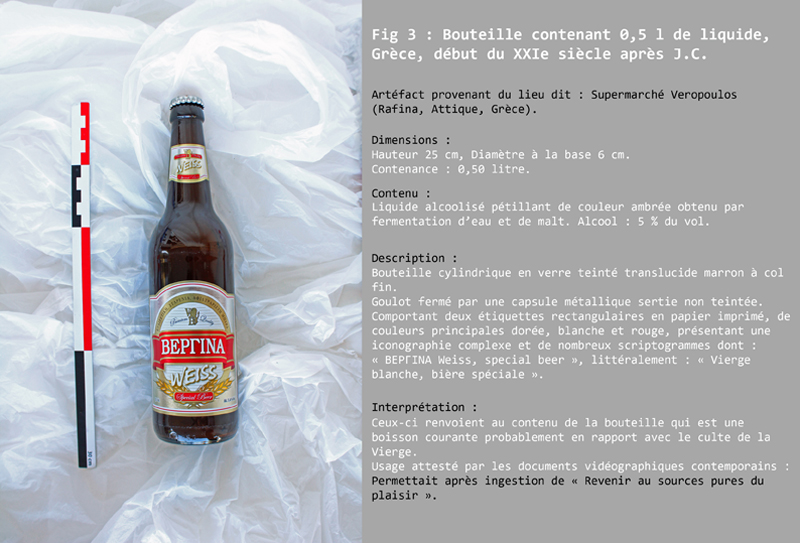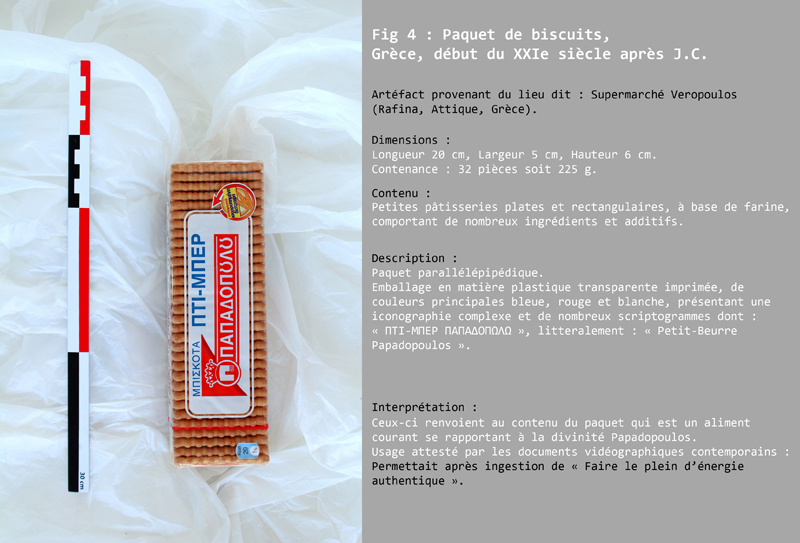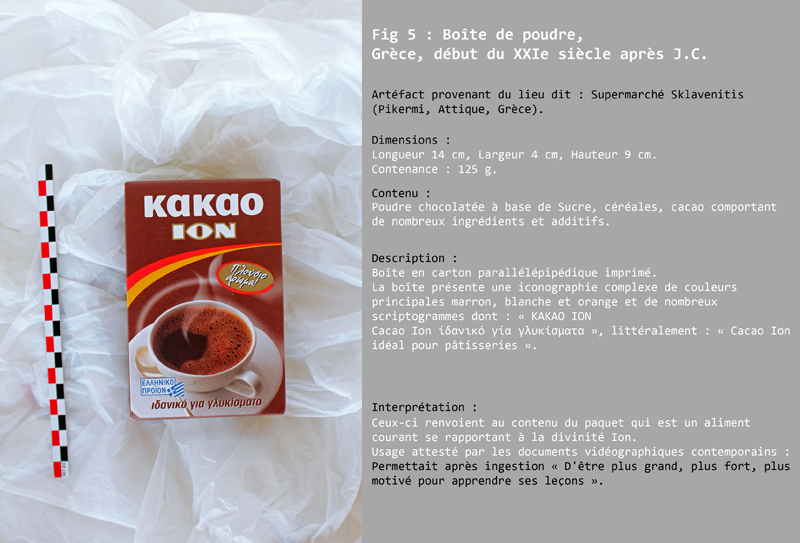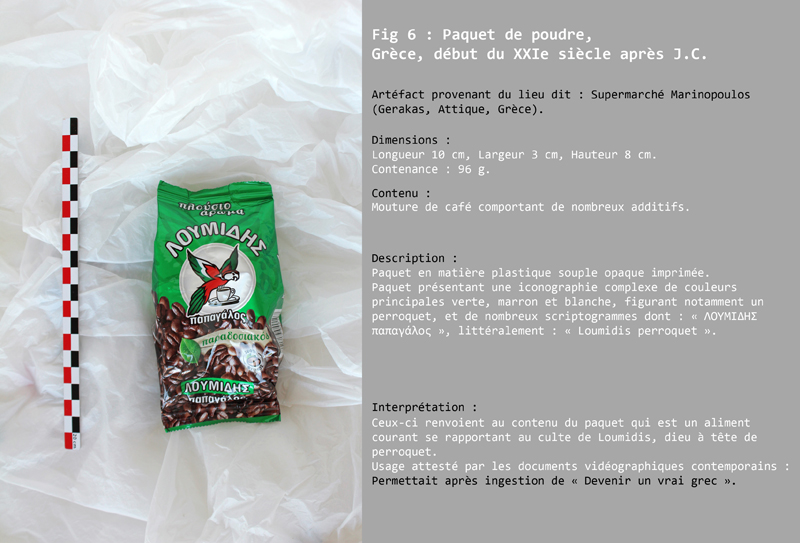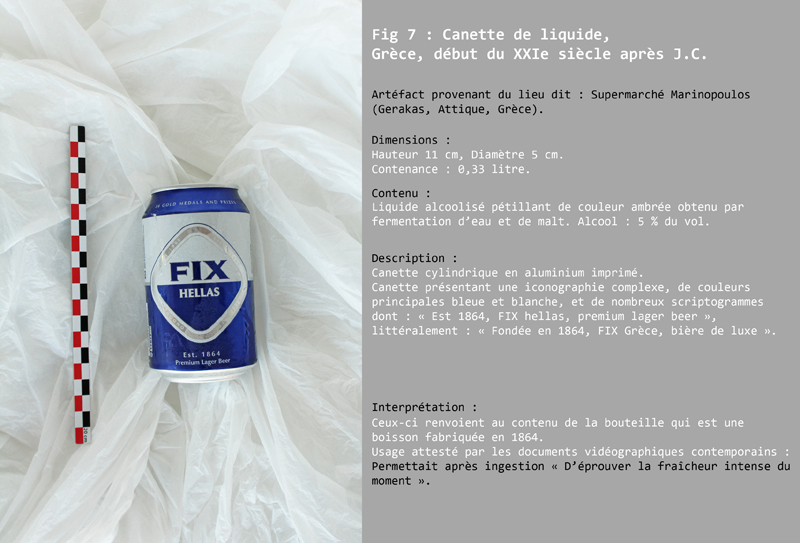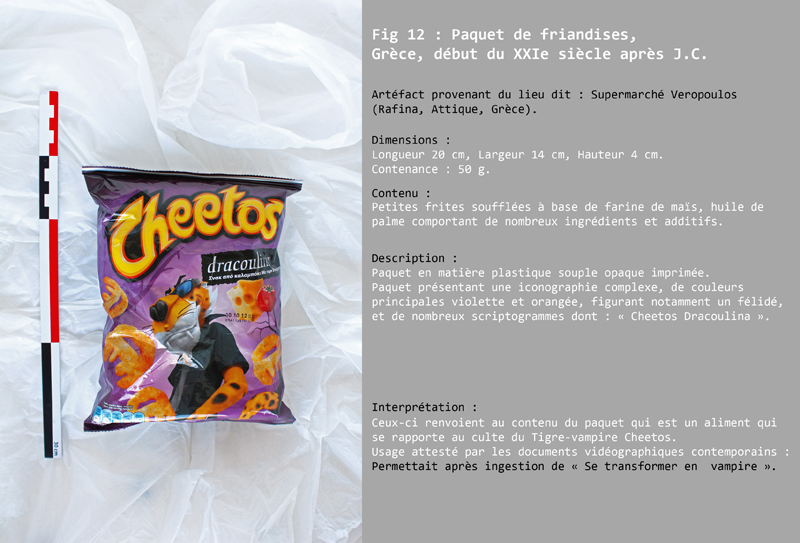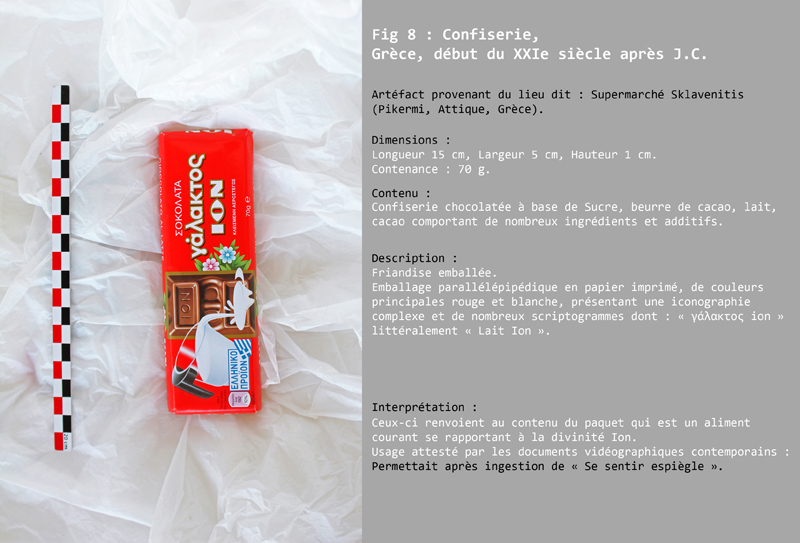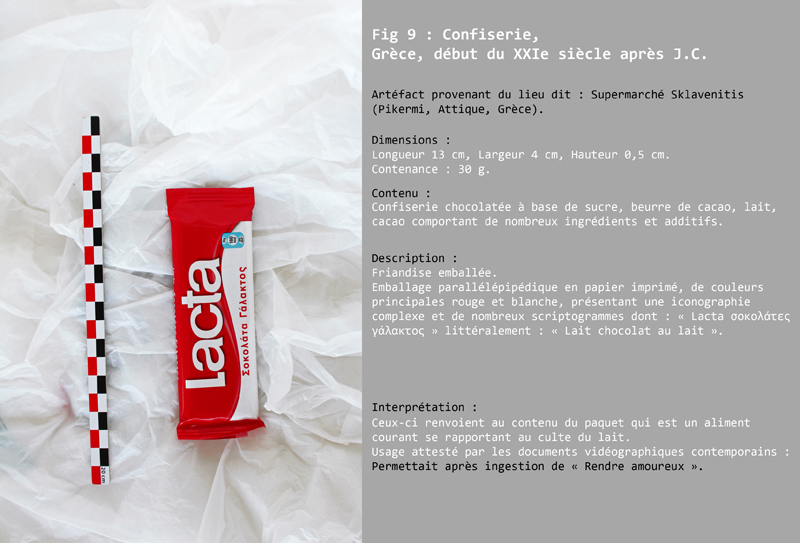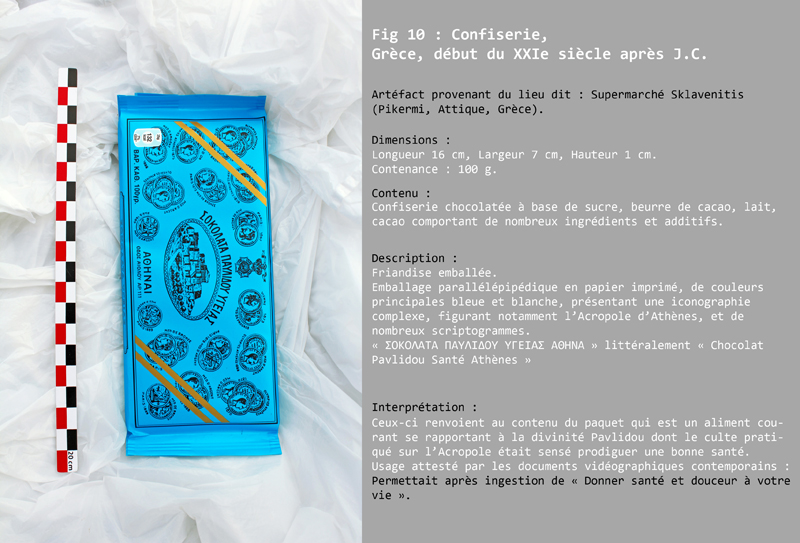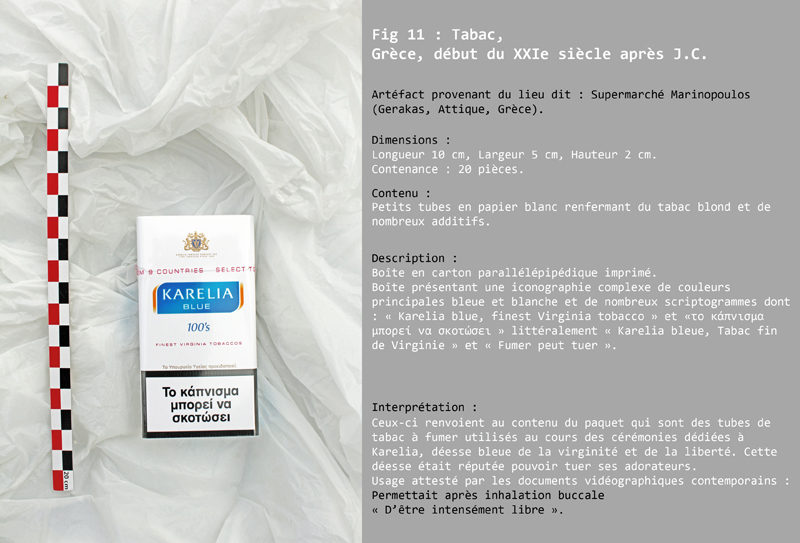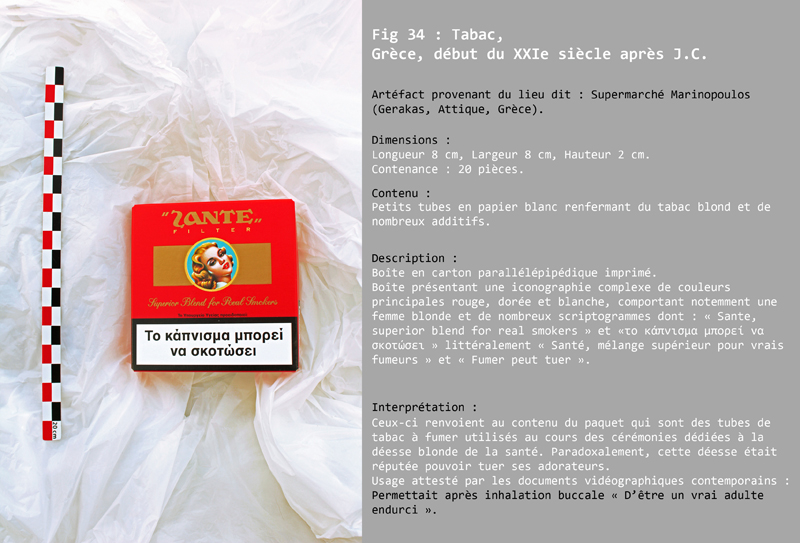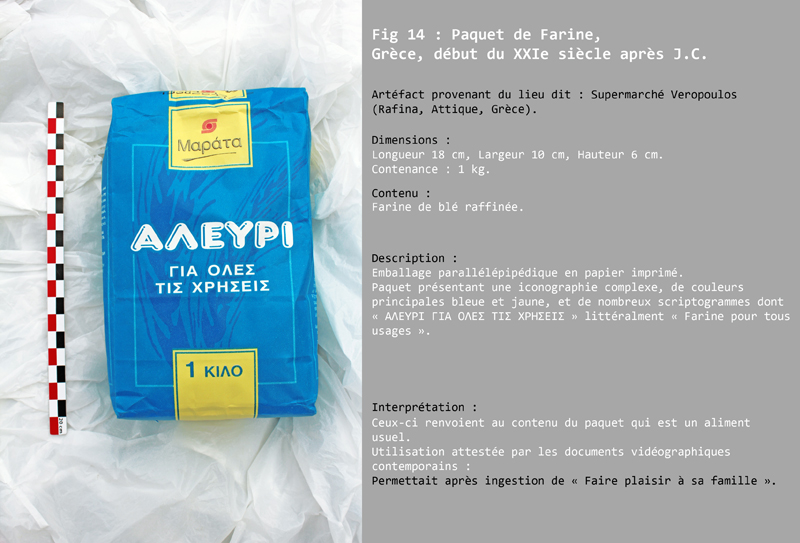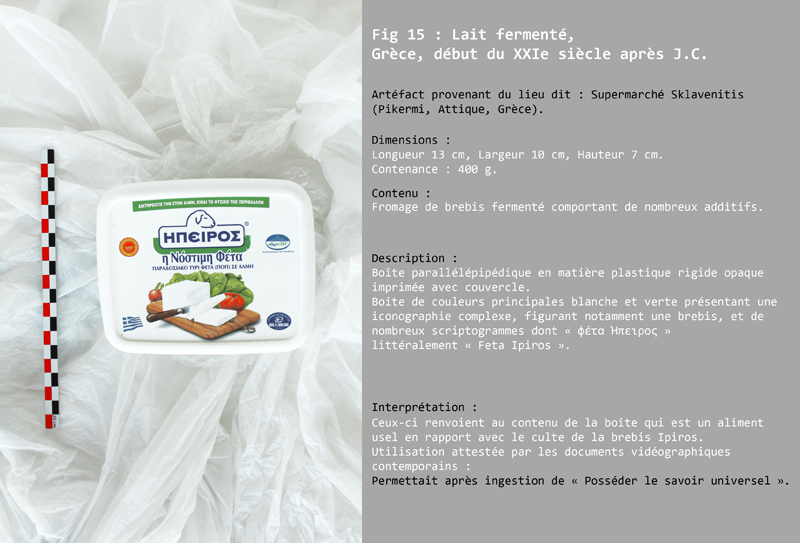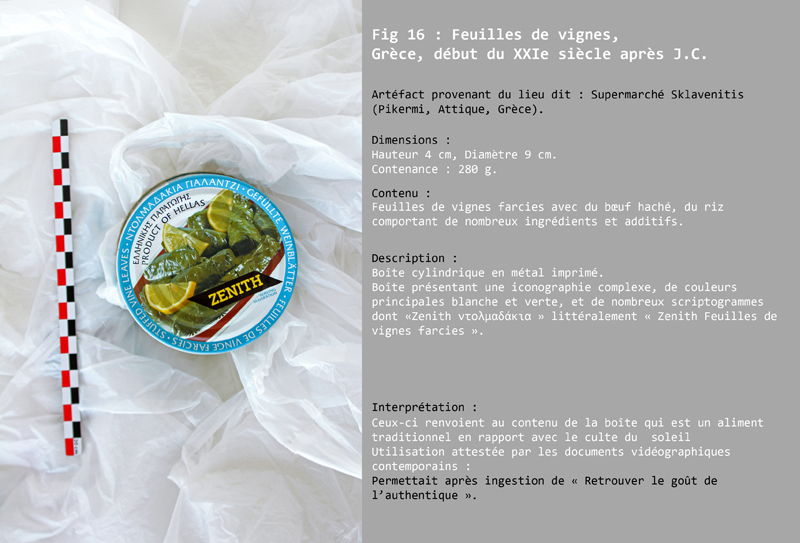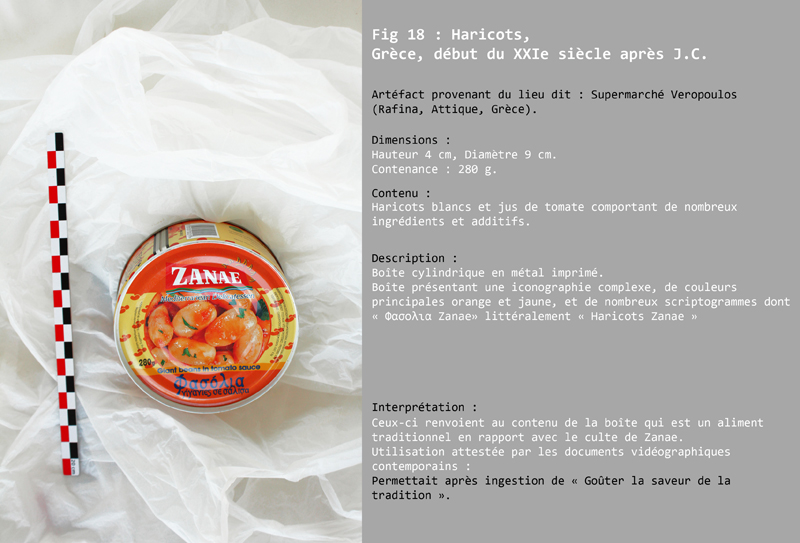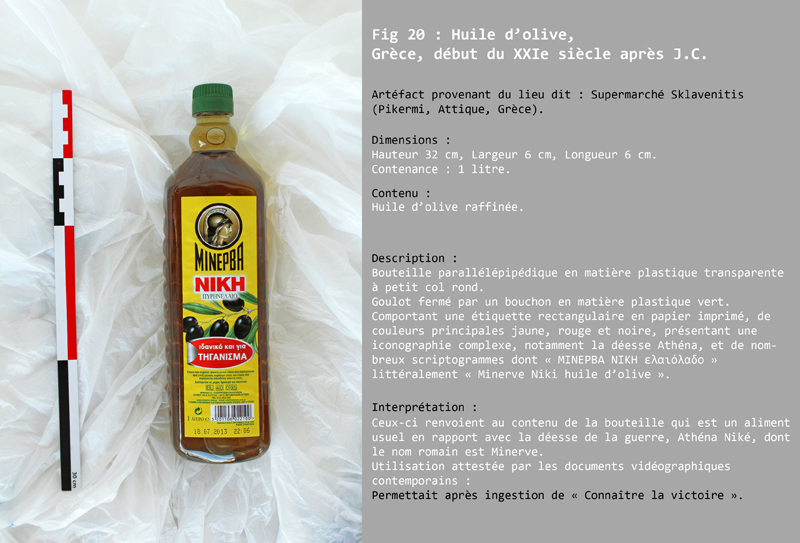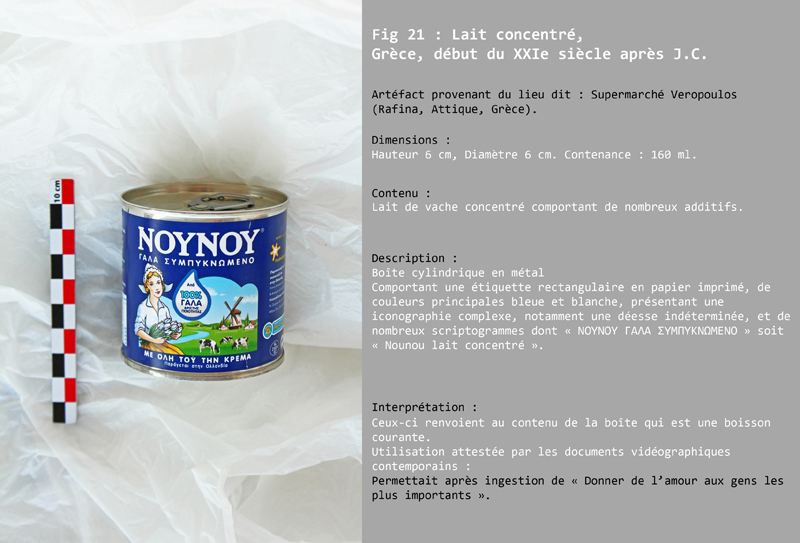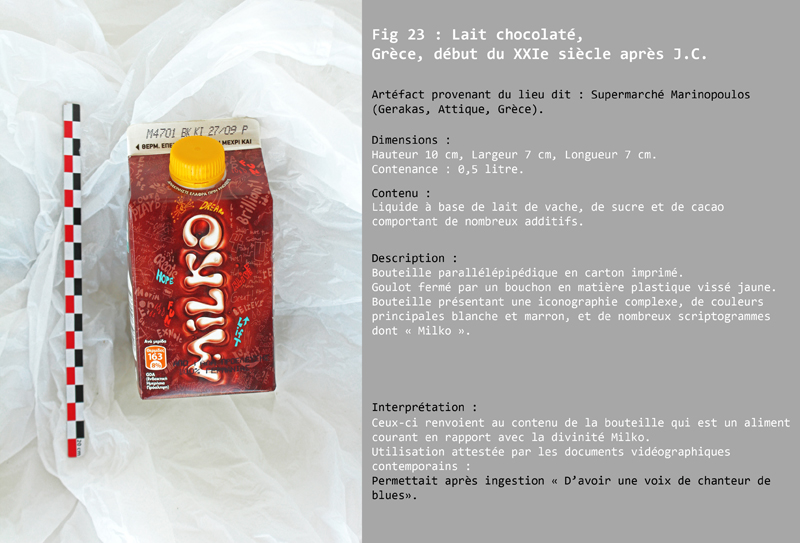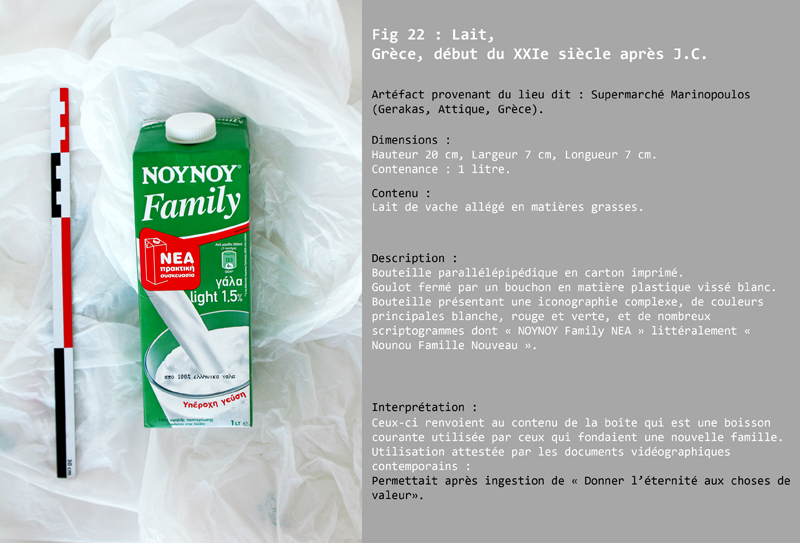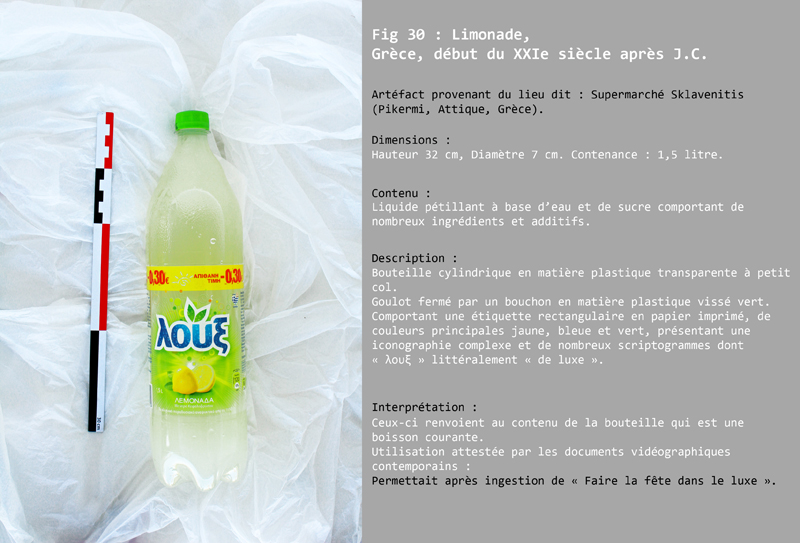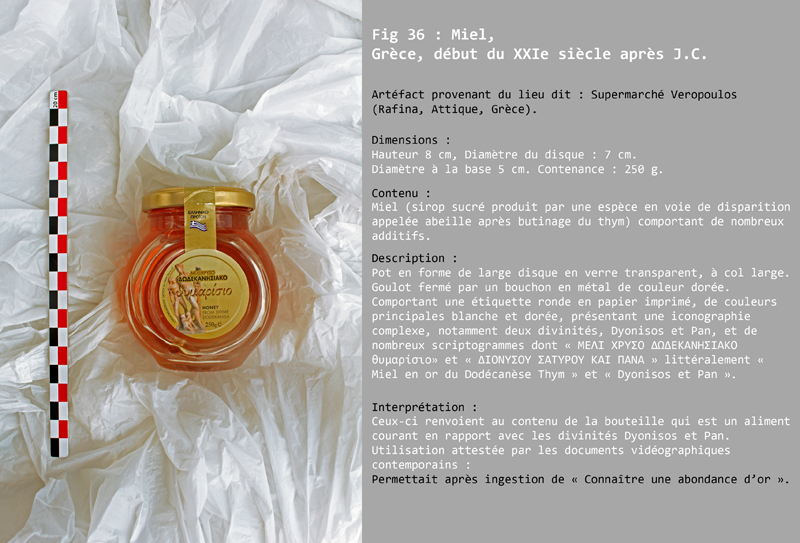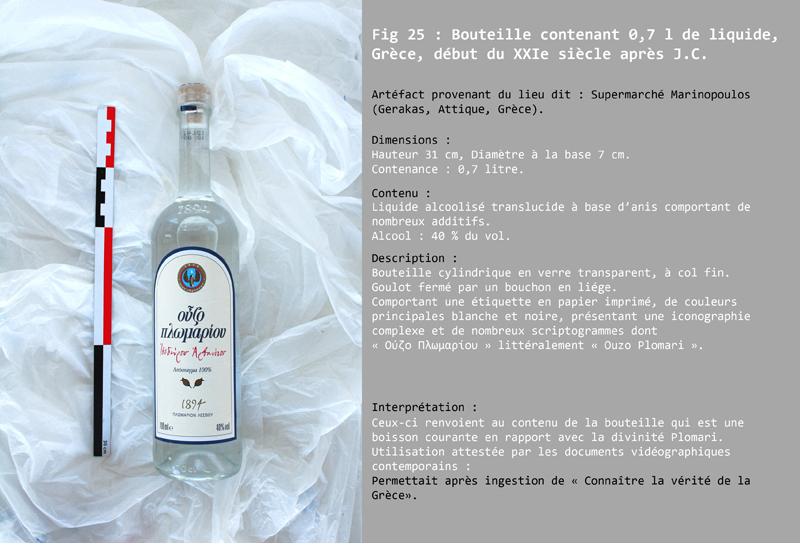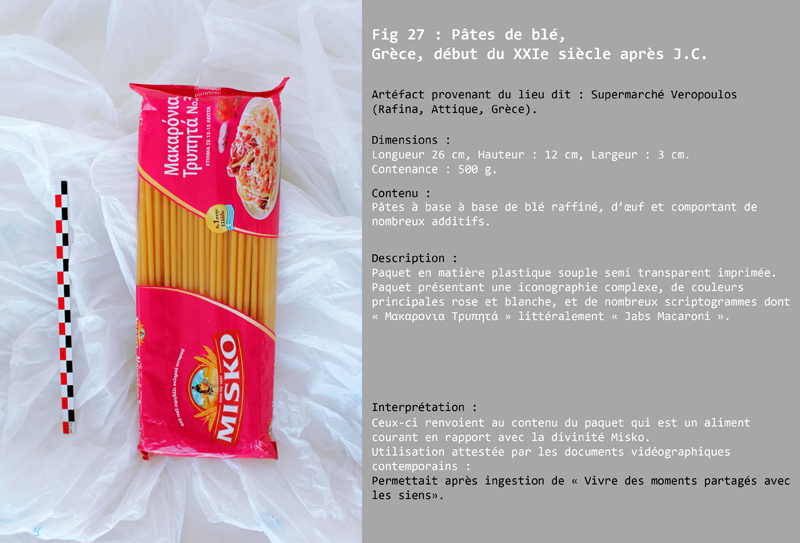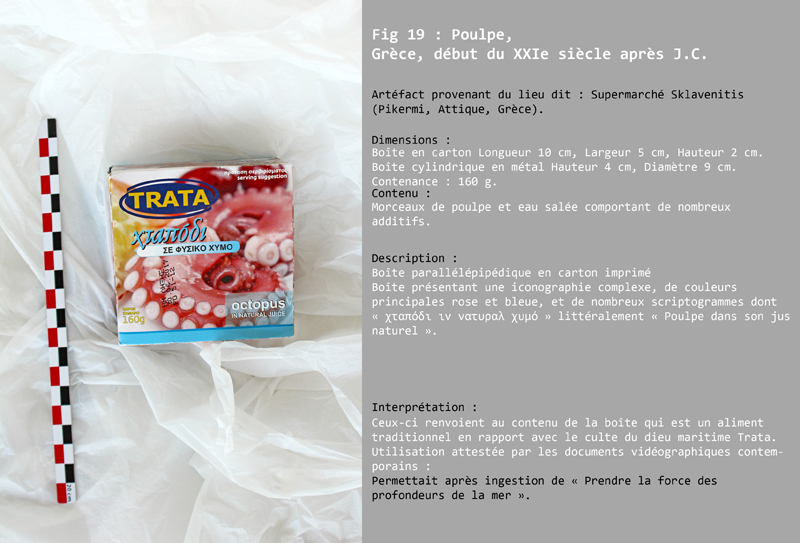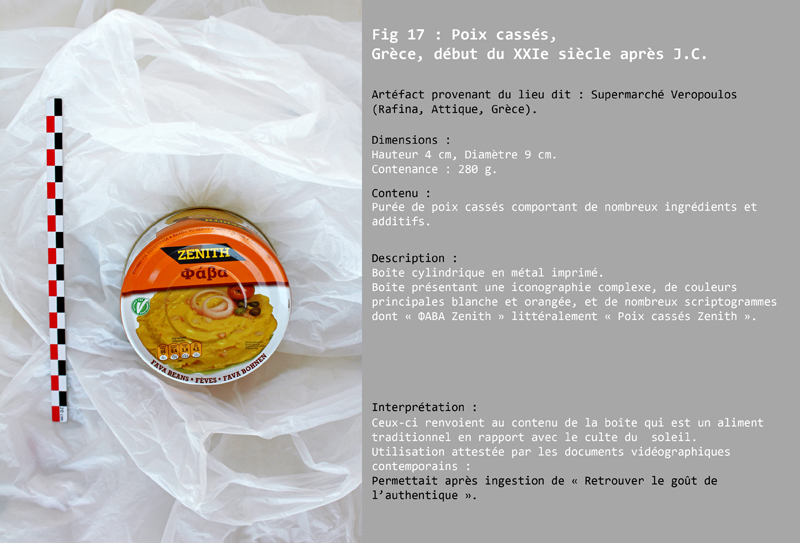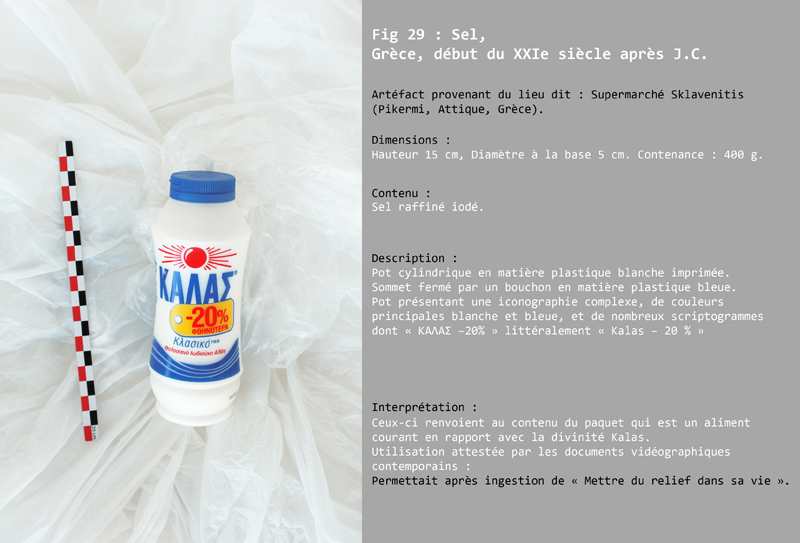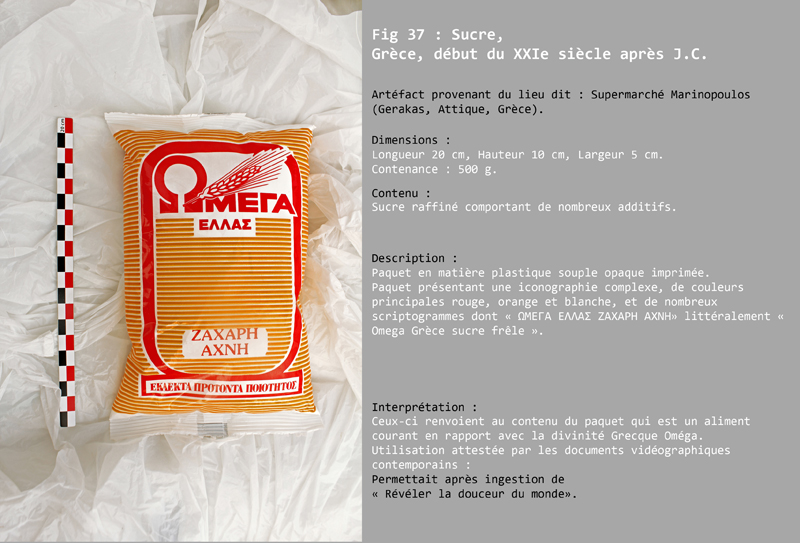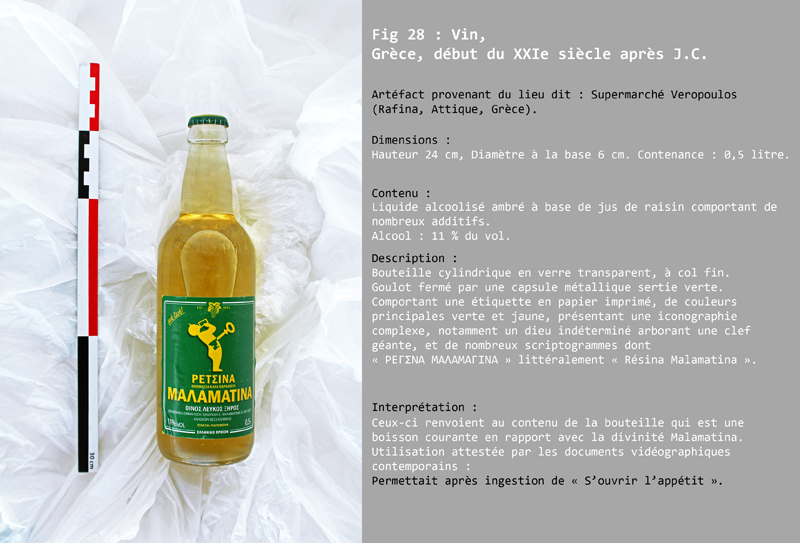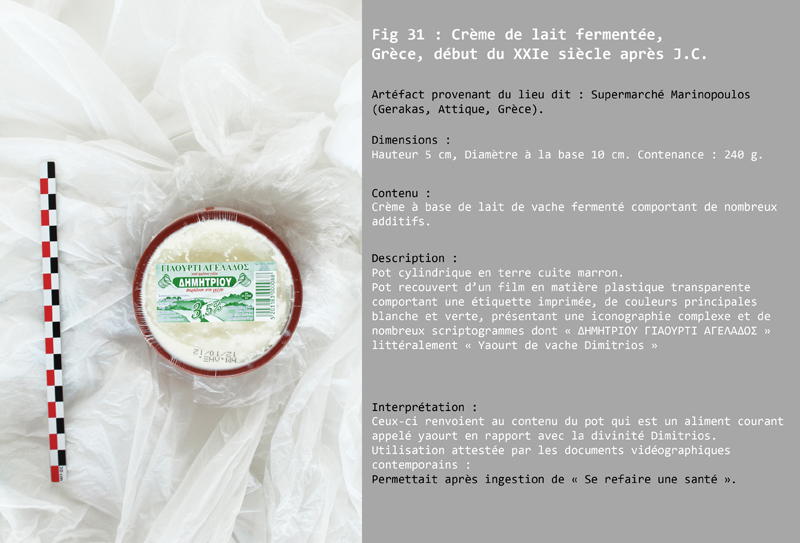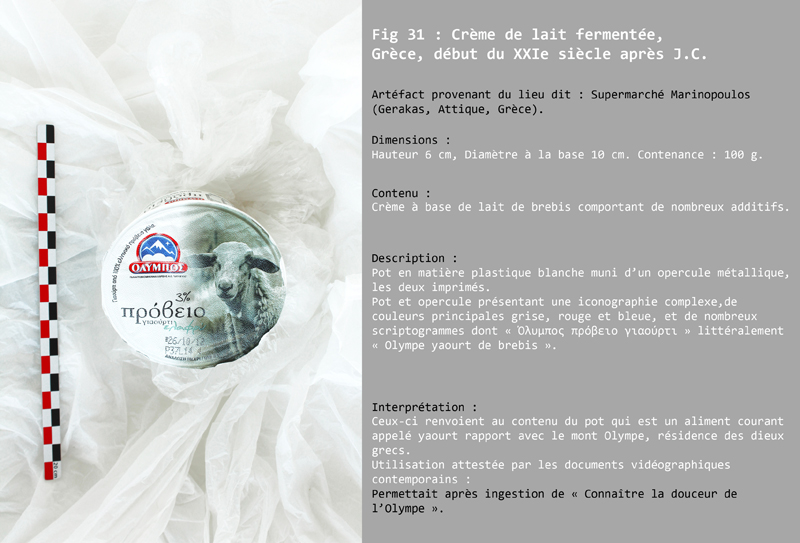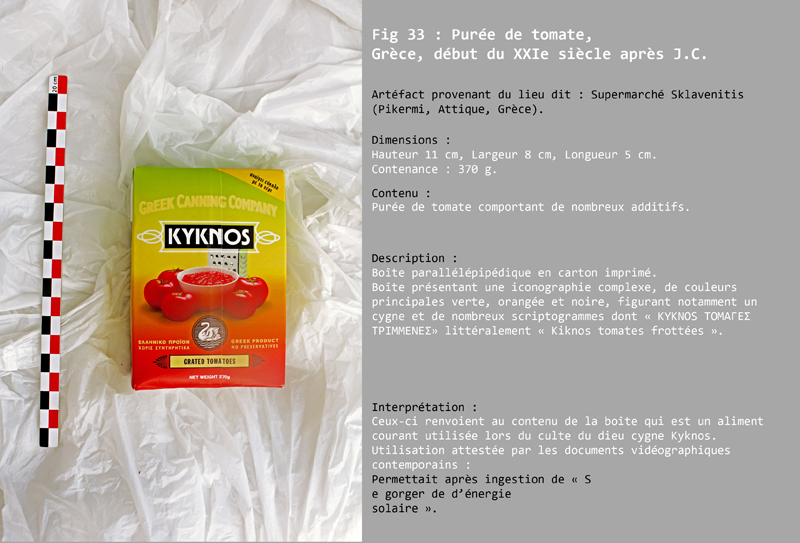SuperExcavation
Work : Superexcavation
At first, I asked the population to name industrial food products they considered to be ‘typically Greek’ .
I then purchased those items during what I like to call my ‘supermarket excavations’. I subsequently itemised them carefully and used a television advertisemens relating to each to interpret them in an ‘archeological sense’.
Location : Athens, Greece, October 2012.
Reference text :
Raffina, Attica, October 2, 2012
I am in Greece.
After having shaken the Icelandic financial system last year (!!!) by offering over-indebted inhabitants the opportunity to draw their own banknotes which I exchanged for real, hard-paying euros, I returned to the cradle of our civilization where I call myself an archaeologist. Unilever having recently announced its intention to sell its products in small packages to face the “return of poverty in southern Europe”, I decided to take inventory – before no one can afford them anymore – the food products of the emblematic Greek brands as so many vestiges of an opulence at the end of the race(s). Bazaar champollion laboriously deciphering the mysterious alphabet of their garish labels, I come back with irony to the belief in these “product promises” of which the least we can say is that they have not really been kept.
As a counterpoint, I also began photographing the countless closed storefronts in the center of Athens. By observing their frozen windows given over to graffiti, posters, stencils, to this necessary liberation of speech in a public space devastated by precariousness, I have the impression of finding myself in an Agora in turmoil, rustling with rumors of ‘a world in flux. I am there, on this very place of the Stoa Poikilè. And good old Aristotle would no doubt find that the capeloi are quite a mouthful… I look, I question them, I listen. I am silently witnessing the rise of extremes, of hate speech that we thought was from another age carried by sympathetic mothers draped in the quiet conscience of small businesswomen. Optimists will take this for an intense political moment, a life of the city in perpetual questioning. Others will think that we are experiencing something other than a dangerous return to the 1930s, that the world, the thought that was born here several millennia ago, is disappearing.
I was only born yesterday, in 1970. That year, Jean Baudrillard published “The Consumer Society”. While the work was being distributed in academic circles, I learned to read by deciphering – already – the brand names written on milk cartons and boxes of chocolate powder. Then I swallowed my breakfast and, without knowing it, I participated in this new model of society which swallowed the resources of the planet, the ideas, the myths to make them, not only the manufactured objects of all our desires, but rather a mode of relating to others, to the world, which ultimately consisted of swallowing ourselves along with everything else.
But let’s stay positive. Here, I did not come across the Pythia. No one can predict the future, especially not me. I am just a little traveler who, beyond this compulsive social autophagy – to stay within the Greek concepts – wanted to express this eschatological heaviness that my naturally anguished nature has made me feel lately.
The awareness of a finitude has always crossed the minds of artists. It seems to me that today it is taking on an unprecedented density. This is what I believe I perceive implicitly in a number of works presented this summer at Documenta.
An ideological crisis amplified by technological “advances” led to an ecological crisis which led to an economic crisis which led to a political crisis… A kind of globalized chain reaction which means that today, man is contemplating his individual disappearance but also collective. A situation for which he is, in a probably unprecedented way, largely responsible, as Jared Diamond points out. We will agree that it is heavy to carry.
Sometimes, as Primo Lévi said: “What motivates the artist is the shame of being a man”.
In our case, everything probably needs to be changed. Our behavior and even more so our way of seeing things.
“You don’t solve a problem with the ways of thinking that created it,” Albert Einstein, ardent promoter of the Manhattan Project, knew damn well what he was talking about…
Fortunately, the geopolitical wheel has started turning again. The world of tomorrow will be thought of in Asia, in Africa, by other minds, following other paradigms. We must wish them, wish us, good luck.
For the moment, I am in Attica. I watch our ancient Western utopias sink into the warm, transparent water of the Aegean Sea.
Happy as Ulysses who experiences a beautiful shipwreck…

